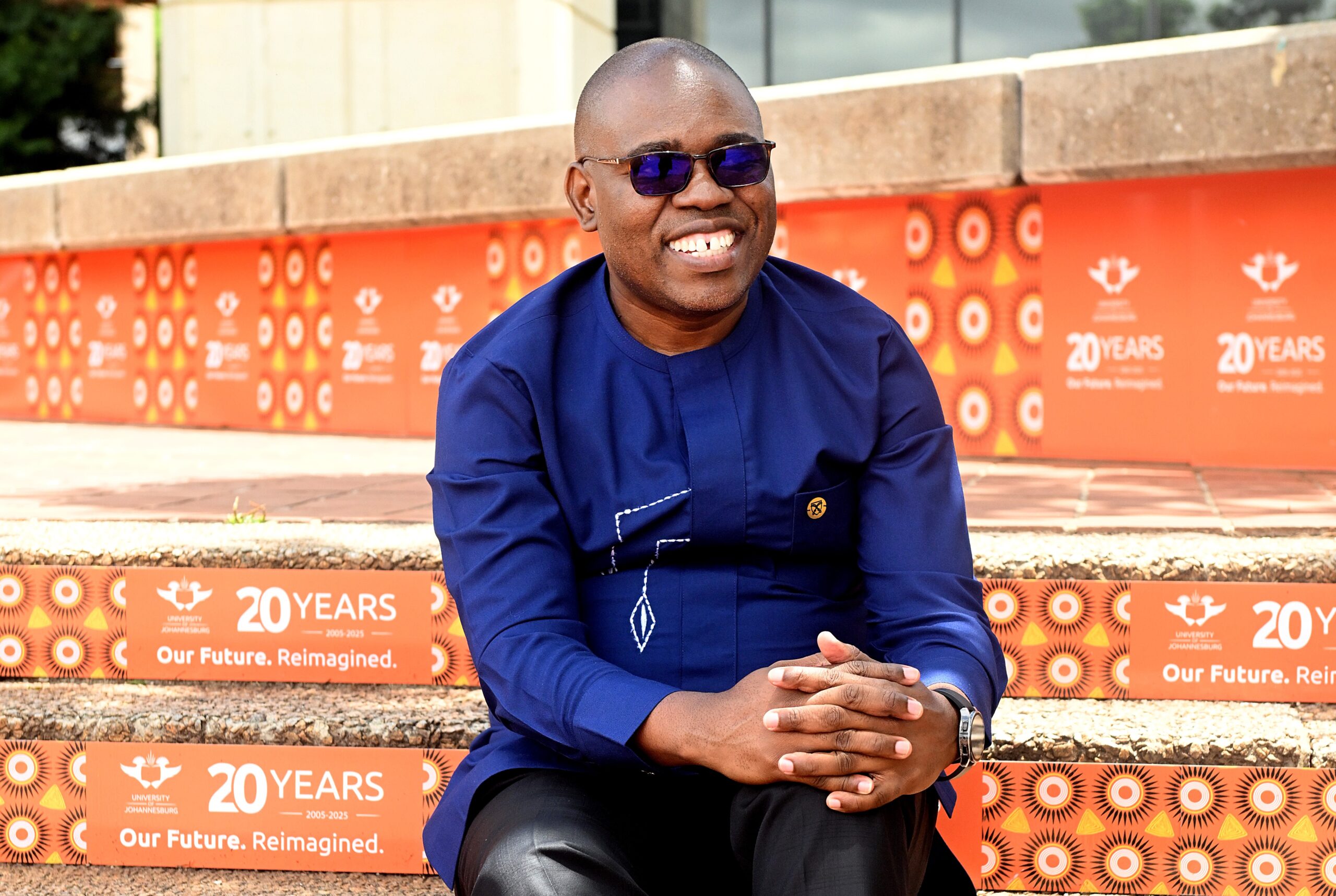“The labour of 20 million enslaved Africans underpinned the rise of Western modernity.” With this statement professor Sir Hilary Beckles had the attention of everyone in the room during his keynote address at the University of Johannesburg’s (UJ) first International Leadership Platform for 2014.
The topic of the public lecture, which was held on 16 January 2014 in UJ’s Council Chamber in the Madibeng Building on the Auckland Park Kingsway Campus, was Repairing the Nation: The meaning of reparations to global Africa. It was hosted by the Division for Internationalisation at UJ which is headed by Executive Director, Dr Pinkie Mekgwe.
According to Tshidiso Konese, the senior manager of International Student Recruitment, Admissions and Welfare, the Division for Internationalisation seamlessly executes internationalisation as a key strategic thrust of the university. “From September 2011, under the leadership of our Executive Director, the division was structured to subsume units for international partnerships, studying abroad, international marketing and recruitment and international student welfare. UJis continuing a rich legacy of internationalisation, enhancing its scholarly engagement and impact on national, regional and continental transformation agendas,” he explained.
Beckles is an entertaining speaker, and dressed in a local shirt which, he explained in his pleasant Caribbean accent, he bought in Soweto earlier in the day, he quickly captivated the audience with his reasons for the need of reparations and the continuing negative legacy of slavery to the people of the Caribbean.
He was born in Barbados and today he is an internationally respected historian, the Pro Vice-Chancellor and principal at the University of West Indies and the author of several books, including Britain’s Black Debt: Reparations for Caribbean Slavery and Native Genocide. He was also appointed Chairman of the 17 country CARICOM Reparations Commission last year. Konese explains that Beckles was specially invited to speak at UJ during his visit to South Arica, and he was also attending a conference at Wits.
The legacy of slavery
The most interesting thing about Beckles’ talk was that there is still a need for reparations and that slavery continues to impact people’s lives in the 21st century. Slavery is still in the spotlight, as the incredible movie 12 Years a Slave, which has been nominated for nine Academy Awards this year, proves. Should one think about it, it actually makes sense that a system (slavery) which was in place for 400 years should have a lasting impact on communities and whole countries. In the Caribbean, the legacy is very real as Beckles explained that a lot of people on the islands are unhealthy and suffer from type two diabetes and hypertension which, interestingly, are the result of the stress their enslaved ancestors had to endure. Illiteracy, economic and social problems and poor governance are also continuing issues which the ancestors of African slaves have to deal with in the Caribbean today.
Reparation may be a controversial subject, but according to Beckles, the global African reparations movement will be the largest political movement of this century. He further explained that there is a difference between reparations and a settlement. A settlement requires no acknowledgement or apology for any wrong doing; instead it is an offer of financial help. Reparation requires an acknowledgment of a crime, for people to take responsibility for the consequences and to take steps to repair the damage.
According to Beckles, the British parliament has said that the crimes are too large to be subjected to meaningful discussion and that Europe has already given aid. “However, a conversation is necessary and it is not about confrontation but about reconciliation. An apology is needed for closure and people must be prepared to make sacrifices in order to stand up for equality.”
Repatriation, where the descendants of African slaves have the opportunity to return to the country from where their ancestors were taken, is also part of the reparation process, said Beckles. “There have been people from the Caribbean who have returned to live in the west of Africa from where their ancestors were stolen and sold, but this process needs a lot of refinement.”
The establishment of a museum in the Caribbean about the history and legacy of slavery is also essential, he said. “It is actually unbelievable that there is no museum on the islands where our children can go to learn about their history. The establishment of such a museum will go a long way to teach future generations about their past.”
The respondent to Beckles’ address, Professor Thaddeus Metz, a research focused professor of Philosophy at UJ and author of more than 100 scholarly journal articles, book chapters an encyclopaedia entries on a variety of topics, raised a few interesting points. He used Beckles’ latest book Britain’s Black Debt: Reparations for Caribbean Slavery and Native Genocide as a starting point to his discussion.
Reparations as a necessity
Metz asked why reparation is necessary and gave three rationales for reparation. “The first is an appeal to fair distribution of benefits, an equalization of people. The second is to restore an original state and repairing of damages done in the past. The last rationale is reconciliation where formally opposed people work together and there is a disavowal of injustices. An apology is necessary, put people need to put their money where their mouth is and concrete offers are needed.”
Several questions from the audience proved that the words of both speakers inspired those present to think differently about slavery and its legacy. It also proves the success and necessity of the International Leadership Platform at UJ. According to Konese, the platform started in 2013 and it hosts international-national dialogue led by high profile speakers across the world.
“The platform forms part of UJ’s Internationalisation agenda, and speaks to the university’s vision of an International University of choice, anchored in Africa, dynamically shaping the future,” said Konese.
UJ also envisions itself as a catalyst and meeting ground for critical engagement pertaining to Africa’s development, he explained. “Hence the first lecture this year was in consonance with the UN’s declaration of 2012-2024 as the decade of people of African descent. The reparations debate, in Africa and globally, has gained momentum in recent years, and it will only grow in significance over time as nations seek healing from past wrongs. South Africa was designated facilitator of the consultative process for proclaiming 2014-2024 the International Decade for People of African Descent with a view to centring ‘Recognition, Justice, and Development’ to issues pertaining to global Africa.”
After the public lecture Konese said that the International Leadership Platform is set to promote a culture of free and open dialogue on political, cultural, and economic matters affecting South Africa, Africa and the world – bridging the space between universities and research institutes on the one hand, policy makers as well as the general public on the other. The platform will be hosted monthly.



